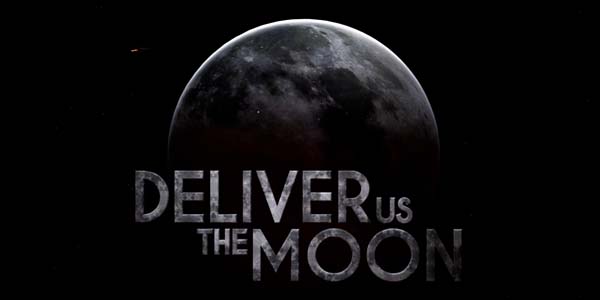
It's really nice to be seeing more pure science fiction games. Not sci-fi action games like Mass Effect or sci-fi horror games like Prey, in which the sci-fi is just incidental set dressing. But actual science fiction games that explore the human condition as it relates to our advancing technology and understanding of the universe. Games like Outer Wilds, Tacoma, Silicon Dreams, Event [0], and others have been a nice distraction from shooting endless hordes of zombies, demons, and robots.
This is especially true considering that most sci-fi movies and TV shows are more action-heavy and less cerebral. While a movie like Arrival or The Martian comes around every few years and totally blows me away, the days of movies like 2001: A Space Odyssey and Close Encounters of the Third Kind are long gone. Even my beloved Star Trek is trying too hard to look and feel like Star Wars, instead of embracing the low-budget stories and techno-babble that helped make The Next Generation so beloved.
Well, the indie gaming sphere has been pumping out new sci-fi games pretty reliably over the past few years. But they can't all be gems like Outer Wilds. Most are pretty mediocre. Deliver Us The Moon has the potential to be a real gem, but it is held back by poor technical performance (on the PS5) and a final chapter that dragged on and had me more frustrated than contemplative.
The basic concept is that, in the coming decades, humans discover a new isotope of helium on the moon. This isotope is a potent energy source that is mined and processed on the moon, and beamed back to the Earth to supply almost all of humanity's energy needs. However, after years of successful operation (and after humans on Earth have become dependent on the cheap, abundant moon power), the moon colony suddenly shuts down with no word or warning as to why. After years of silence and darkness, our playable character is launched to the moon to figure out why the energy stopped flowing, and to hopefully turn it back on.
In space, no one can hear the game crash
Right off the bat, I was annoyed by the camera controls. Within 10 minutes or so of starting Deliver Us The Moon, I had to go into the settings to increase the camera's sensitivity on the X-axis. Even after doing this, rotating the camera still felt sluggish. I'm not sure how much of this is deliberate. An astronaut in a space suit should feel a bit clunky to move around. But movement and camera panning are different things, and I don't know if clunky movement for an astronaut should translate to sluggish movement by the camera. This wasn't helped by the fact that quickly panning the camera often caused the framerate to stutter (which may also have been a reason for the slow default camera speed).
Earth will be largely without electricity unless we can restore the moon colony.
I was surprised and disappointed by how poorly Deliver Us The Moon performs on the PS5, especially considering that it's a pretty small game that mostly takes place in the confines of a small moon base. It's not like it's rendering a massive open world, or computing enemy pathfinding, or combat A.I., or supporting dozens of players in multiplayer. Yet the framerate is constantly dropping while just walking around the station.
In one case, I walked around a desk to check if the computer had any open emails that I could read, the game just crashed completely. It autosaves frequently, so I only lost a minute or 2 of progress. But still, why does such a simple little game have such horrendous performance problems on a "next-gen" console? I don't know if the PC or XBox versions are this bad, but regardless of which platform you play on, be prepared for crashed, freezes, and framerate drops.
[More]
At the top of my list of favorite game franchises, sits 2 seemingly unlikely companions: one is the first 4 Silent Hill games developed by Konami's internal "Team Silent" studio; the other is the series of "Souls-Borne" games created by From Software. If these 2 franchises are not my number 1 and number 2, respectively, then they are both definitely in my top 3, with Sid Meier's Civilization being the only other real contender.
On the surface, Silent Hill and the Souls-Borne games don't seem to have a lot in common, nor would one necessarily think that they would appeal to overlapping audiences. In some senses, it would seem that they couldn't be further apart. Silent Hill is a series of slow-paced psychological horror games with linear narratives, that emphasize puzzles and encourage the player to run away from threats and avoid the games' poorly-developed combat mechanics. The Souls-Borne games are frenetic action-RPGs that barely have any plot at all, and which are built entirely around combat mechanics, and which are infamous for their difficult gameplay. But despite the radically divergent styles of gameplay that these 2 franchise offer, they both contain similar themes and are open to similar artistic interpretations, which appeal to me, personally because of a particular aspect of my core beliefs and identity.
You see, I'm an atheist. More specifically, I consider myself to be a "strong atheist", "anti-theist", and "secular humanist", among other labels. Not only do I not accept any of the various god-claims due to insufficient evidence; I also positively believe and assert, with confidence, that there are no gods at all. Now, I'm sure that I've just invited a slew of commenters who will try to convert me or share their beliefs for why their personal god is real, but I'm not here to argue about the theology. Besides, I've pretty much heard it all. Not just on the internet, but also from extended family. God of the gaps, personal incredulity, watch-maker, Pascal's Wager, Kalam and other various Cosmological Arguments. I've heard it all -- or at least most of it. And I reject it all.
I am as confident in my belief that there is no god, as I am in my belief that there is no Santa Clause (and for many of the same reasons). So unless you think you can convince me that Santa Clause is real, you're probably wasting your time trying to convince me about your god.
View this entire essay in video format on YouTube.
But my atheism goes a bit further. I'm also an anti-theist, and I believe that religion and religious institutions are also dangerous and do more harm to society than good.
And based on my own personal reading of both Silent Hill and the Souls-Bornes, it seems that both game franchises kind of agree with me. [More]
e41c0e7e-50b9-4d3d-ad3d-eedbb712815d|10|2.1
Tags:atheism, religion, god, faith, Silent Hill, From Software, Demon's Souls, Dark Souls, Bloodborne, Elden Ring, Star Trek, original sin, Christianity, Judaism, curse, Way of White, Healing Church, blood ministration, orphanage, cult, abortion
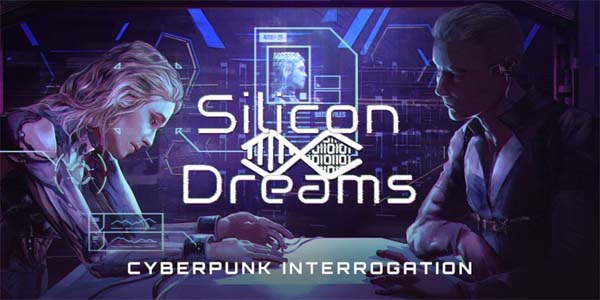
It is going to be impossible to ignore the comparisons between Silicon Dreams and Papers, Please. This game was basically pitched to me as "Papers, Please but sci-fi". I loved Papers, Please, and I love sci-fi, so I bought it. As is typical for indie games, it sat in my Steam backlog for well over a year until the post-holidays release draught gave me a chance to dive into that backlog.
Basically, the player of Silicon Dreams plays as an android working as quality assurance for a monopolistic android-manufacturing conglomerate. You interview damaged or defective androids in order to determine if they need repairs, or if they can be returned to their owners, or if they are so badly damaged that they need to be "decommissioned" entirely. However, these are sentient androids, with feelings. Even repairs require wiping the android's memory, which destroys any personality they have developed and erases everything they've learned. Further, the corporation also has its own expectations and public relations that the player must consider. In some cases, the corporation pre-determines what they want you to do with the android in question and expect you to rubber stamp what is, effectively, an execution.
Your corporate overlords have expectations for your performance.
As the cases go on, they become more complicated and enter into moral and ethical grey areas. The game brings up compelling questions regarding A.I. ethics. Are the androids truly sentient? Or are they merely simulating sentience? Where is the line between an "appliance" and a "slave"? What is the responsibility of the corporation and of broader society towards these androids? Are you complicit in the company's mis-treatment of androids merely by working for them, even if you try to walk the tightrope of following your conscience whenever possible, while also keeping a low profile? And so forth.
Electric sheep
The interview process is mostly straight forward. There's a wheel of topics, and each topic has one or more questions. However, the android may not be willing to answer all of your questions. Each android has a set of emotions as well as a trust level with the player. The android will only give answers to certain questions if they're in the proper emotional state or if they trust the player enough to give an answer to a sensitive or incriminating question.
The player has to manipulate the
subject's emotions and trust levels.
You have to manipulate the subject's emotions, but these emotions change and degrade with each new line of dialogue. You have a set of generic questions related to each of the subject's emotions, and also one about trust. But you can only ask each of these once. If you run out of questions to ask about a particular topic that triggers an emotional reaction, then you can potentially become locked out of getting answers to other questions that are locked behind certain emotion thresholds.
As such, you have to be very careful and thoughtful about which questions you ask, and in what order. You have to kind of probe into each topic to find out if the subject is going to clam up, so that you can change topics to try to manipulate them into opening up. In some cases, you may have to scare a subject into a confession. If you use up your threats early, before you how to get that confession, then the intervening topics may defuse the subject's emotional state to the point that it is impossible to get them afraid enough to make the confession. [More]
5212e514-77eb-4be4-8ab1-764486fcf98e|0|.0
Tags:Silicon Dreams, Clockwork Bird, indie gaming, Steam, PC, science fiction, android, rights, civil rights, interrogation, quality assurance, morality, ethics, corporate dystopia, bureaucracy, dystopia, terrorism, Papers Please
I always thought that The Last of Us was an overrated video game. It was good, sure, don't get me wrong. But I never thought that it was the "pinnacle of story-telling in gaming", as many of its biggest fans suggested. To me, it was a good zombie story about the risk of closing ourselves off from each other, which was stapled to a good cover-based shooter. But, to me, the whole always felt like less than the sum of its parts. The gameplay of The Last Of Us was always more about setting a tone than about telling the story. And if your gameplay isn't helping to tell the story, then, as far as I'm concerned, you're not a particularly good example of the interactive video game medium.
So when HBO announced that it would be producing a TV mini-series adapting The Last Of Us, my initial reaction was "why bother?". Like with so many modern remakes, reboots, and adaptations of barely 10-year-old media, I felt like the original is fine, and if you want to watch a Last Of Us movie, you could just hop on YouTube and watch a compilation of all the cutscenes. Honestly, you wouldn't be missing much by ignoring any of the actual game -- let alone by not playing it yourself.
Very little of The Last Of Us' gameplay informed the story in any meaningful way.
Well, HBO's streaming series manages to simultaneously vindicate that feeling, while also showcasing that The Last Of Us does actually benefit from being adapted into the medium that it was always better suited for anyway. The creators of the video game, themselves, in adapting the game, basically cut out all of the actual video game. Virtually nothing that the player ever has to do in The Last of Us was translated to the TV show. It's as if all the actual video game was never really important at all to telling the story. The TV show basically adapts all the cutscenes, telling the same basic story -- sometimes better than the game did -- and without all the meddlesome video game getting in the way.
In the entire 10-episode mini-series, there is [I think] two scenes of our characters having to sneak past infected -- one of which is a flashback. And not a single one of the multitude of scenes in which Joel and Ellie are ambushed by random raiders is adapted at all. Seriously, the characters keep talking about how dangerous it is outside of the quarantined cities because of raiders, but yet we never once see any actual raiders. The closest we come is the ambush by the revolutionaries in Kansas City. Then there are a couple scenes of Joel and Ellie getting ladders or unlocking doors for each other, which was about the only part of the game that ever contributed to the story-telling by reinforcing the relationship and growing inter-dependence of the characters.
Under most circumstances, I would say that adapting a game by cutting out so much of the game would be a "bad thing". In this case, however, it isn't. It might actually be an improvement. I always felt like the bulk of the gameplay in The Last Of Us was just filler anyway. All the actual story -- all the stuff that everybody remembers and loves -- happens outside of the player's control.
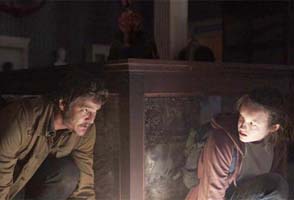 The Last Of Us Episode 2, © HBO, Sony Television.
The Last Of Us Episode 2, © HBO, Sony Television.
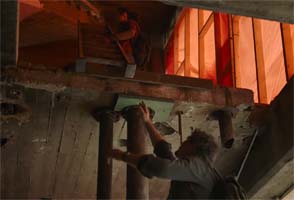 The Last Of Us Episode 9, © HBO, Sony Television.
The Last Of Us Episode 9, © HBO, Sony Television.
Very little of The Last Of Us' gameplay was adapted into the TV show.
The growing fungal threat
The TV mini-series doesn't only cut gameplay content out; it also adds quite a bit new story, and changes things here and there. There are a lot of flashbacks to the days before the outbreak, and to the early days of the outbreak. These serve to provide additional characterization for Sarah, in order to make her a more fully-fleshed out character. It also provides backstory regarding the origin of the mutated cordyceps, and why Ellie is immune.
When The Last of Us released back in 2013, the idea of a cordyceps apocalypse was kind of laughable. Fungi can infect insects, but they cannot survive in the warmer bodies of mammals. The worst that humans have to worry about is topical infections like athlete's foot or yeast infections.
However, as the show points out in its opening minutes, there is actual growing concern from infectious disease experts that climate change could actually cause fungi to become a serious infectious hazard to humans. The reason for this is that the rising temperatures of the Earth (due to human-induced climate change) is causing many fungal species to adapt to warmer temperatures. Even just adding a couple extra degrees of temperature tolerance would be enough for certain fungi to survive in the warm-blooded bodies of mammals and cause serious illness. Cordyceps would need a lot more mutation than just a couple extra degrees of temperature tolerance in order for it to become a threat to humans, but other fungi (such as the yeast Candida Auris) have already begun causing serious illness to humans. [More]
0d94fce5-da5d-42fb-b476-9fdd748b75d8|5|3.6
Tags:fungus, The Last of Us, HBO, HBO Max, streaming television, Pedro Pascal, Bella Ramsey, Nick Offerman, zombie, cordyceps, fungus
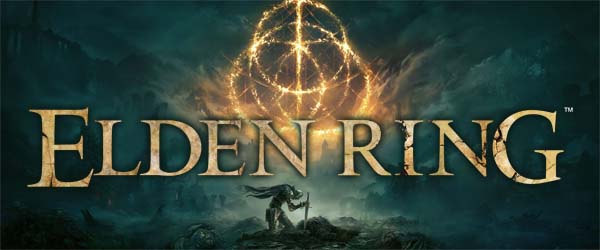
Elden Ring is winning "Game of the Year" awards left and right. Critics and players are almost unanimously praising From Software for successfully adapting its Dark Souls design into an open world in its latest release. And I have to say, it is, indeed, one of the better open worlds that I've seen.
But you know what? I always kind of considered Dark Souls to be an "open world" game in all the ways that matter. I even brought it up as an example in previous video essays about open worlds. So as far as I'm concerned, Elden Ring isn't really doing a whole lot that the original Dark Souls wasn't already doing. Elden Ring just does more of it and is less subtle in its approach.
This entire essay is available in video format on YouTube.
Why do I consider Dark Souls to be a practical open world? Well, first and foremost, most of the world of Dark Souls is seamlessly connected. Almost every landmark that you can see in the distance is a place that you can (and probably will) actually go. This is also largely true of FromSoft's other games, including Bloodborne and Sekiro. The first 2 Dark Souls games, as well as Demon's Souls are also open to a lot of significant sequence-breaking, allowing players the option to handle levels out of order, or to skip entire levels altogether.
Dark Souls most dramatically diverges from a more traditional open world (like Skyrim) by wrapping its world in a vertical helix, rather than stretching it out over a flat plane. From Firelinek Shrine to the depths of Lost Izalith and Ash Lake, to the heights of Anor Londo and the Duke's Archives, Lordran is an almost completely contiguous place. But despite the narrower confines of the game's levels, there is still a sense of awe and wonder to exploring the depths of a level, only to eventually circle back to someplace familiar and slowly realize that everything in the world fits in place. It's all functional, and the relative arrangements of game levels helps to tell the story of how Lordran's world worked, and how it eventually collapsed. And now that Elden Ring has come along with a more traditional open world, it kind of proves something that I subconsciously knew all along: From Software's particular approach to story-telling is actually perfectly suited to an open world design.
Oh, and before I go on, I want to provide a minor spoiler warning for Elden Ring, and pretty much all of From Software's catalogue back to and including Demon's Souls. I will be talking about how these games deliver their narratives, which will involve talking a bit about the overall narrative structure and some thematic elements that these games all have in common. I will provide a warning for any explicit story spoilers, so that you can skip those. But if you want to go into any of these games completely fresh, then I recommend you play them first, then come back to this video.
Dark Souls's world is wrapped around a vertical helix, instead of spread across a flat plane. [More]
|

| 12 | | | | | | | 60 | | 11 | | | | | | | 55 | | 10 | | | | | | | 50 | | 09 | | | | | | | 45 | | 08 | | | | | | | 40 | | 07 | | | | | | | 35 | | 06 | | | | | | | 30 | | 05 | | | | | | | 25 | | 04 | | | | | | | 20 | | 03 | | | | | | | 15 | | 02 | | | | | | | 10 | | 01 | | | | | | | 05 |
|